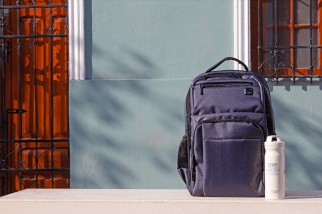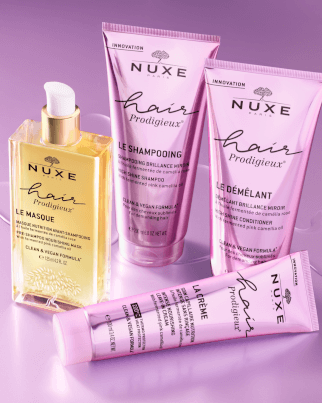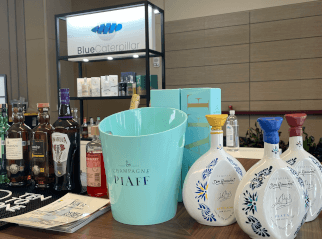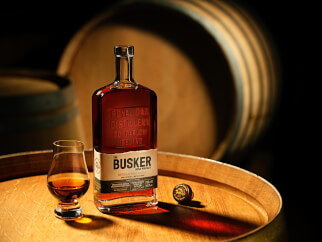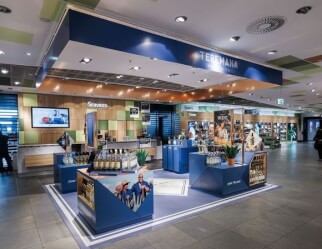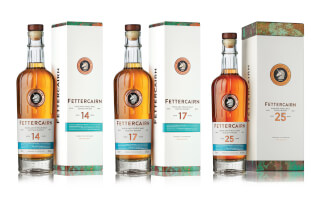First Brazilian border store conference seen as a success
The first border conference examining the duty free land border business in Brazil ended yesterday (November 6) with organizers labeling it a “great success.”
The conference, jointly organized by the South American Association of Free Shops (ASUTIL) and Uruguay’s of Chamber of Entrepreneurs of Free Shops, ended on a high note with all of the 170 people in attendance excited by the new Brazilian land duty free business border opportunities.
“It was a success from every perspective,” said José Luis Donagaray, ASUTIL Secretary-General, in an exclusive interview with Americas Duty Free. “People were able to have meetings, get together, and have contact and be exposed to the information. It was a friendly environment and everyone was able to interact."
Uruguay’s Carlos Loaiza, whose chamber co-sponsored the event, echoed Donagaray’s sentiments in a separate conversation. “It’s a new product, a new brand and a new adventure. We are at the very beginning of a huge project for the future. The biggest achievement (of the conference) was giving the people a great environment to get to know each other and to put them in contact with new operators.”
In fact what attendees appreciated most were the opportunities to network and the opportunities to learn. Particularly relevant was the chance to hear from Brazilian Customs authorities, including Luiz Fernando Lorenzi, the regional head for the Receita Federal in Rio Grande do Sul province, where the conference was held.
“We were able to give them precise and first hand information from the authorities. That is why we are prone to continue our efforts next year,” Loaiza said.
Donagaray said the Brazilian officials had a “positive attitude” toward working with those who want to take advantage of the new opportunities in the land duty free business in Brazil. “It is a new system and it is going to require adjustments and corrections,” Donagaray said of the newly implemented Brazilian law allowing border stores to operate in Brazil. “But they (the Brazilians) will work to improve things.”
Donagaray said at least eight more stores will open on the Brazilian side of the border in the coming months, including those from Duty Free Americas (DFA) and Sky at Foz do Iguaçu in Brazil. DFA is also on track to open another large store in Urugaina, the same city where Dufry Group launched its first Brazil land duty free store a few months ago.
Loaiza also said the Brazilian officials announced that they would increase the allowance for land duty free purchases to US$500 sometime in the near future. If so, that would match the allowance that was just approved for duty free purchases at Brazilian airports, a potential boom to the land duty free stores in Brazil, at least in terms of customers who are Brazilian nationals.
Donagaray said plans are already in the works to hold another border conference next year, although date and location have yet to be determined. This year’s conference was organized in a relatively short span of two months so that it would take place before the holidays and the Southern hemisphere summer. But he said, “this one was so successful, there will definitely be another.”
Loaiza said there was global representation at the conference, noting that there were attendees from “Europe, regionally the United States, Canada, even Australia.”
Conference goers heard from DFA and Dufry at educational sessions where smaller operators like Free Shop Caraballat, New York Free Shop and Central Free Shop also shared details about their operations. Dufry Group also hosted the conference’s welcoming dinner.
Those in attendance also heard from Maria Villanueva of travel retail researcher m1nd-set who provided insights on consumer shopping patterns at the land duty free stores.
Other speakers included Argentine economist, Carlos Melconian, who analyzed world and regional economies and their potential impact on the travel retail and duty free industries.
Melconian shared his concerns about Brazil, where the economy has been flat, even though basic factors like low inflation and low debt are steady. Melconian also provided some analysis of the potential impact of the government change in Argentina where last month’s elections are bringing a new president to power in December.
In terms of Argentina, Donagaray said the industry is keeping an eye on “the devaluation of the (Argentine) peso. That is our major concern.”
Relationships between Mercosur nations in terms of products and prices at all the border stores that operate in the region – not just Brazil, but Uruguay, Paraguay and Argentina — are still very much on everyone’s minds. But again, there is optimism. “This is an opportunity to find a consensus with all the governments. We need to compete on a level playing field,” Loaiza said.
The opening of the land duty free stores on the Brazilian side of the border is changing the regional duty free dynamic. Although legislation allowing for the establishment of land duty free stores in Brazil was approved years ago, it was just this year that Brazilian customs officials said stores could open.
One of the first to take advantage of the new law was Dufry Group, which opened a store in Uruguaina, in Rio Grande do Sol, at the border with Argentina in August. Two other smaller stores opened in Barra do Quarai and Jaguarão, both towns near the border with Uruguay in July.
Up until now, all the duty free action has been on the other side of the border primarily in Argentina and Uruguay, where the largest land duty free stores attracting Brazilian customers operated. But the new law will allow land duty free stores to open in Brazil in any of 32 Brazilian cities bordering Argentina, Paraguay, Peru, Colombia, Bolivia, French Guiana, Uruguay, Guyana, Venezuela and Surinam.

